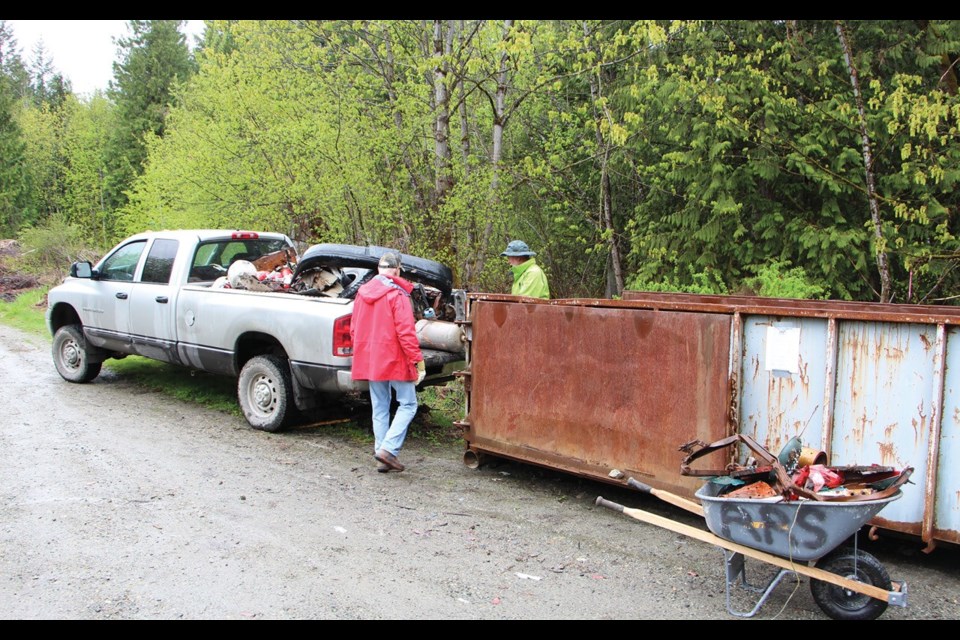On the backroads of the Sea to Sky, you might happen upon an ugly sight. Mouldy, decaying recreational vehicles, appliances left in the forest to rust and crumple, household garbage blowing in the wind in prime wildlife habitat.
According to a new report presented to the Squamish-Lillooet Regional District (SLRD), illegal dumping is a growing problem that is becoming a rising concern across the region.
In a July 28 presentation to the Committee of the Whole, consultants Sue Maxwell and Tamara Shulman presented an Illegal Dumping Strategy and Action Plan to the board that brought forward a range of recommendations to tackle the issue.
The report found that most illegal dumping locations were in easily accessible places, not far away from the highway, on roads commonly situated under powerline rights of way, where people were less likely to be seen dumping rubbish.
"People wanted places where there was little chance of being seen dropping off their materials, or there might have been a history of dumping in the area, be it a closed landfill or if it used to be a community waste location. It is also associated with camping or squatting, especially in some northern parts [of the regional district]," said Maxwell.
The illegal waste found throughout the region ranged considerably from mixed household garbage to furniture and construction materials, as well as tires and yard waste, according to the report.
Yard waste was noted as a type of waste most people don't consider illegal since it involves returning the organic materials back to nature. The issue is that yard waste can lead to invasive species being introduced into the ecosystem and can increase wildfire risk.
“Communication will be key, so developing a communications action plan specific to this, using the tools that the SLRD already has," said Maxwell.
"[The SLRD should be] providing information on existing disposal options, showing how to report incidents of illegal dumping, and highlighting the risks of dumping yard waste because that was a bit of an outlier, and in terms of fire hazards around our area, that will be important."
Currently, enforcing the rules around illegal dumping is done on an ad-hoc basis, Maxwell said. Community groups like the Pemberton Wildlife Association (PWA) have done community clean-ups in the past, with the costs of disposal covered by the SLRD.
No specific bylaws deal with illegal dumping in the regional district, which means there is currently no formal process or budget to deal with the problem in the SLRD.
"The Conservation Officer Service and the Natural Resource Officers get the reports from the RAPP line. They can enforce illegal dumping. However, they don't have enough resources to handle everything in our area, which means that they end up prioritizing it based on whether it is going to harm wildlife or oil leaking into a fish-bearing stream," said Maxwell.
The report makes several recommendations for dealing with the issue. These include making waste disposal more accessible, making it more challenging to dump illegally, partnering with a broad coalition to report and coordinate clean-ups, more communication with the public, increased monitoring of known dumping sites and ramped-up enforcement.
The report also proposed introducing a bylaw and fine for the illegal disposal of waste, better controlling access to backcountry roads, potentially with gated entry, increased monitoring through the use of cameras and adding a part-time staff member to focus on the issue.
From here, the report's recommendations will be further refined, with the action items and associated costs prioritized for board consideration before the 2023 budget deliberations.
If you observe unlawful dumping or polluting, contact the COS RAPP line at 1- 877-952-7277, or online here.




